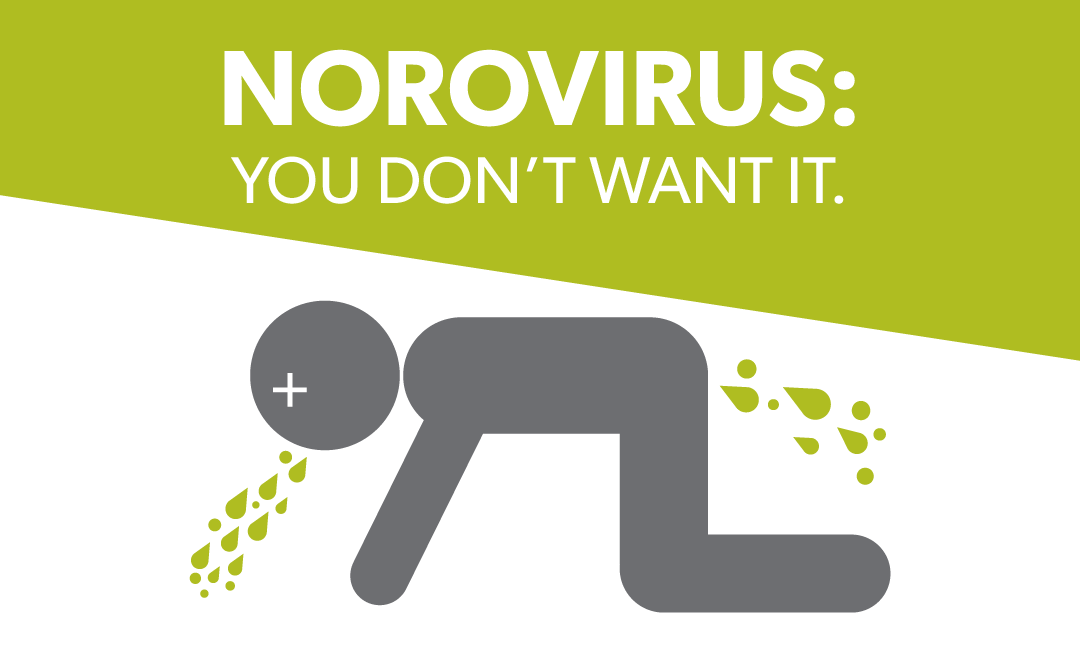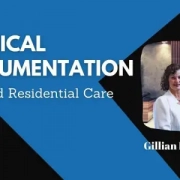When Norovirus hit, the staff hit back!

ONE EXPERIENCE OF NOROVIRUS MANAGEMENT
Some may think the actions a little extreme but the objective was to minimise risk to others and in doing so, minimise the numbers of people (residents and staff) infected with Norovirus. The below is how one facility dealt with a norovirus outbreak recently.
Here’s how we dealt with what happened in our facility:
With the Clinical Nurse Manager on annual leave at 8.00 am on Friday 11 January the Senior RN advised the QA we had two suspected cases of vomiting and diarrhoea. At 10.00 am the Senior RN advised the QA we could have four more cases of diarrhoea.
An immediate meeting was called with management and the situation discussed. The following steps were instigated –
- We immediately referred to our HCSL Safe and Appropriate Infection Control policy manual.
- We decided to take the “worst case” scenario approach eg Norovirus.
- We then set out an “action plan” and held a meeting at 11.00 am with all the staff present to advise the situation and actions to be taken –
Action Plan
- Infection Control at DHB were advised and samples were sent for analysis
- The Rest Home was put into “lock down”. The families and next of kin of all the residents were advised.
- The Village residents were advised and instructions given to them on procedures to follow.
- The doors between the three sections of the Rest Home were closed and staff confined to these areas only – no exceptions.
- The infection log from HCSL system was immediately put into use – an RN had to sight all vomit and diarrhoea together with noting the times and dates – this information was supplied on a daily basis to DHB – this information was imperative to identify if virus was spreading, how quickly, or if it had been confined to certain areas etc.
- The RNs appointed “dirty” nurses on each shift. A “clean” person was also appointed for delivering supplies around the whole rest home. Trollies were meticulously sanitised when “travelling” between these areas.
- Kitchen staff were confined to the kitchen only
- All residents were confined to their rooms with meals being delivered using “clean” and “dirty” trollies. This may seem extreme but the residents were agreeable to this.
- Diagrams out of our policy manual were put in the Nurses Stations on how to put on PPE. Full PPE was mandatory in all “dirty” residents rooms and when serving food or drinks. Face masks were mandatory for all staff at all times – no exceptions. Full face shields were used in the laundry and any very soiled linen was disposed of as per instructions.
- Hand washing and sanitising techniques were vigorously adhered to.
- The cleaners were issued with “heavy duty” cleaning products and all vacuuming was banned.
- Being an older Rest Home with only certain areas being air conditioned it was easy to turn off all conditioning and keep off.
- Residents were encouraged to open their windows for fresh air and let in the sunlight.
- Cleaning equipment was kept in the “dirty” rooms for their use.
- All residents were advised to put toilet seats down prior to flushing and flush twice.
- All residents and staff were reminded of hand hygiene practices and we ensured the appropriate supplies of hand washing and hand hygiene gels were available.
- Communal areas in the Rest Home were closed, cleaned, sanitised and not used.
- Management held a daily meeting at 9:00am to report on the up to date situation and a report was issued to the staff at 1:00pm and a daily report issued to the DHB.
- The rest home was advised by DHB ON 16 January 2019 to let residents out of their rooms but stay confined to the areas of the Rest Home they lived in
- On 21 January 2019 the rest home underwent a complete steam clean of carpets, drapes etc,
- On 22 January 2019 we re-opened the Rest Home to visitors again.
LESSONS LEARNT
We had a total of only 4 confirmed cases of Norovirus – one in the hospital and three in the rest home. At the time the Rest Home was fully occupied (60 residents).
Follow your Policies and Procedures “to the letter”. Without the excellent information contained in our policy manual we would not have achieved the result we did as everyone had varying views on what to do. We had only one “view”.
We received congratulations from our DHB on handling this situation and receiving the outcome we did.
And of course we knew we always had the back-up of Gillian at HCSL either via email or telephone if required.

Leave a Reply
Want to join the discussion?Feel free to contribute!